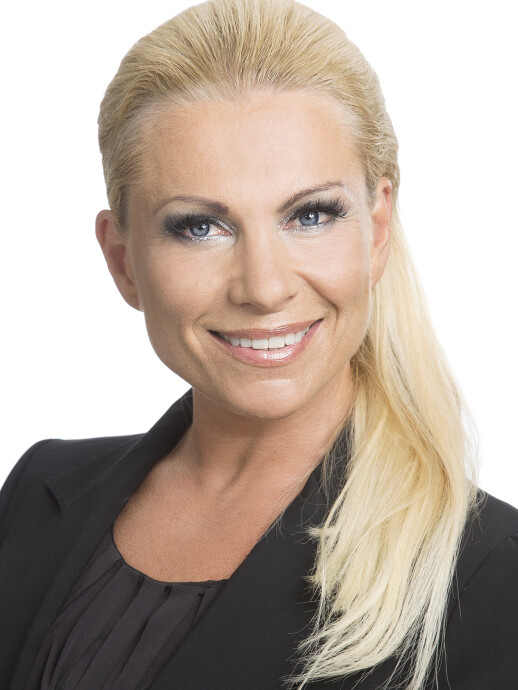Research and development projects
Project activities
TSE Pori unit implements numerous development and research projects in cooperation with companies and public organizations. On this page, we present our most significant ongoing and completed projects.
The project team focused on development projects is led by research manager Päivikki Kuoppakangas. The Pori unit has also several multidisciplinary research groups.
Ongoing projects
The ENERGY! project (project code A91971) was developed to help small and medium-sized enterprises in Satakunta to make sustainability beneficial and boost their competitiveness. The project promotes energy efficiency and related RDI activities that encourage the use of renewable energy, strengthens energy and material efficiency in business operations, increases carbon neutrality, and reduces greenhouse gas emissions.
Objectives
ENERGY! offers SMEs the support of a diverse developer community and an open innovation environment for green energy business ideas and early-stage innovations. In addition, the project provides companies with up-to-date information on current green energy phenomena, peer and expert support from a multidisciplinary developer community, and the opportunity to connect to green energy value and supply chains. New ideas and early-stage innovations generated by the project may relate to improving operational efficiency (e.g., digitalisation, artificial intelligence), value creation that enhances quality, or radical innovations, such as radical technologies and cross-sector production processes and value chains. The project focuses on generating ideas and early-stage innovations and, where possible, supports companies that want to go further, e.g., in developing product and service concepts.
Results
SMEs gain skills, knowledge, and expertise for renewing and growing their own operations, as well as access to compatible partners. They gain practical tools for incorporating green energy into their business operations, peer support for solutions that improve energy and material efficiency, and responsibility communication. Companies gain knowledge about existing opportunities and support materials for promoting carbon neutrality, as well as an understanding of the risks posed by climate change and biodiversity loss and how to prepare for them. One of the key outcomes is also a guide on climate sustainability and green energy.
Project duration: 1 October 2025–31 May, 2027.
Funding
The ENERGY! project is co-funded by the European Union and implemented by three different units of the University of Turku. The funding authority is the Centre for Economic Development, Transport and the Environment of Central Finland from the EU Regional and Structural Policy Programme ”Innovation and Skills in Finland 2021–2027”.
Implementing organisations
ENERGY! is led by the Pori Unit of the Turku School of Economics (TSE Pori). The project is implemented in cooperation with the Finland Futures Research Centre of the Turku School of Economics (FFRC), and the Department of Mechanical and Materials Engineering of the Faculty of Technology of the University of Turku.
Project Team
Project Director Päivikki Kuoppakangas, TSE Pori
Project Manager Kirsi Laitio, TSE Pori
Project Researcher Susanna Virkki, TSE Pori
Specialist Sari Söderlund, FFRC
Specialist Communication Tuulia Nevala, FFRC
Professor Oskar Karlström, Department of Mechanical and Materials Engineering, University of Turku
(name.surname@utu.fi)

The VIISAAT project aims to develop sustainable and innovative solutions that enable SMEs to succeed in the face of climate change. The project provides SMEs and their value chains with practical information on preparing for and adapting to climate change. It also provides information on improving sustainability reporting and utilizing it in decision-making processes.


VIISAAT provides companies with information and expertise on preventing and managing climate change risks, as well as developing disaster preparedness and resilience.
It will develop a climate-resilient management process model to support companies in adapting to climate change and strengthening their resilience. This model serves as a strategic planning and decision-making tool for companies and their value chains regarding climate change risk management and adaptation. The model provides concrete operating models and tools for strategic planning and decision-making within companies.
VIISAAT identifies and evaluates innovative digital solutions that facilitate sustainability reporting, promote value chain collaboration, and encourage the use of sustainability data.
VIISAAT will develop a set of methods tailored to SMEs to help them monitor changes in their operating environment, strengthen their competitiveness, and engage in climate-resilient strategic planning. The project will develop methods and tools to facilitate cooperation between value chains and stakeholders, enabling them to implement climate change preparedness and adaptation jointly.
Funding and schedule
The main implementer of the VIISAAT — Strong Climate Resilience, Innovative Adaptation, and Adaptive Action (R-02187) project is the Pori unit of the Turku School of Economics (TSE Pori), with Prizztech Oy as a co-implementer. The project is funded by the European Regional Development Fund (ERDF) as part of the EU’s “Renewable and Competent Finland 2021–2027” program through the Satakunta Regional Council. The implementation period is from September 1, 2025, to May 31, 2028.
Further information
- Anne Erkkilä-Välimäki, TSE Pori, anne.erkkila-valimaki@utu.fi
- Päivikki Kuoppakangas, TSE Pori, paivikki.kuoppakangas@utu.fi
The Finnish marine industry consists of marine equipment manufacturers, turnkey suppliers, design offices, system suppliers, software providers and shipbuilding, ship repair and offshore yards. At the moment, sustainability represents the key point in all actions of Finnish maritime companies. The transition of Finland's blue economy companies towards carbon neutral and more digital business operations offers a considerable number of opportunities for Finnish maritime companies. Many of these companies have risen to the challenge by developing current and new operations and products. The MERIMERKIT project brings together the knowledge of two different organisations, namely the Lahti Region Development (LADEC) and the Pori unit of the Turku School of Economics at the University of Turku.
Objectives and results
The main objective of MERIMERKIT is to strengthen the competitiveness, vitality and resilience of maritime companies by offering them new solutions facilitating their innovation activities in collaboration with their networks. These innovation activities are targeted to support companies within the maritime industry in their path towards carbon neutral operations and actions. Environmental, economic and business aspects play a key role in the operating models to be built during the project.
The sub-objectives support the achievement of the main objective:
1. Analysis of the current state of the maritime industry (the state of the maritime industry domestically and internationally)
2. Promoting national and international partnerships
3. New operating models and innovation in the maritime industry
4. Communication and information sharing
The implementation of the project is based on interviews, workshops, surveys and studies, and events where support is provided for the development of the models to facilitate the renewal fo the business network. The target group of MERIMERKIT is the entire maritime business life in the area of South and Southwest Finland covering large companies as well as SMEs and micro enterprises.
MERIMERKIT offers a comprehensive information package of the current state of the maritime industry and supports the networking of actors in the business both in Finland and abroad. The main result of the project measures will be the strengthened ability of the maritime companies to implement and coordinate the new sustainable innovations.
The project duration is 1 January 2023–30 September 2026.
Funding
MERIMERKIT is a project co-funded by the European Union and implemented by the Lahti Region Development (LADEC) (project code A80495) and the Pori Unit of the Turku School of Economics at the University of Turku (project code A80496). The funding authority is the Regional Council of Satakunta from the EU Regional and Structural Policy Programme ”Innovation and Skills in Finland 2021–2027”.
Lead organisations
Lahti Region Development (LADEC)
Turku School of Economics at the University of Turku, Pori Unit (TSE Pori)
Project Team
Ville Uimonen | +358 50 574 3222 | Lahti Region Development LADEC
Anne E. Suominen | +358 40 779 9494 | University of Turku
Website https://sites.utu.fi/merimerkit/

Project objectives:
The project supports the new multi-use of Satakunta peatlands and just transition by generating, compiling and sharing information to support private and public decision-making and by bringing stakeholders together. Stakeholders are those whose lives directly or indirectly are connected to peatlands, including those living near the peatlands. The project will identify suitable uses for three different types of former peatland. It will also identify new uses that have already been introduced and their feasibility in Satakunta. The project produces an information tool that supports landowners, companies and authorities in selecting a new use for each peatland that creates new livelihoods and meanings in an ecologically sustainable way and maximizes the socio-ecological benefits.
The implementation of the project is based on workshops, where the views of the operators are mapped and information and support are provided for the development of the new uses of peatlands. Actors are seen as everyone for whom the bog can provide ecosystem services. As a result of the project, the ability of the landowners and other stakeholders to develop new activities and see new meanings of peatlands is strengthened.
Project duration: 1.11.2023-30.6.2026
Lead organizations: University of Turku: School of Economics, Pori Unit and the Department of Landscape Studies and Finnish Environment Institute SYKE
Funding: Satakuntaliitto – The Regional Council of Satakunta
Contact: Päivikki Kuoppakangas (University of Turku, TSE Pori Unit)
Project team: University of Turku: Reeta Hautaniemi (TSE Pori Unit, project manager), Jarmo Vehmas (FFRC), Eeva Raike (Department of Landscape Studies), Laura Puolamäki (Department of Landscape Studies, starting 1.4.2024)
Finnish Environment Institute SYKE: Anu Lähteenmäki-Uutela, Antti Sallinen
Completed projects
The permanent address of the publication is https://urn.fi/URN:ISBN:978-952-02-0491-4 (in Finnish, with an English summary).
The Fostering Corporate Growth Through Smart Business Practices project strengthened the RDI activities of the Pori Ecosystem Agreement in the focus areas of automation and robotics, technology metals, and the circular economy. The project was part of a collaboration between The Finnish Innovation Fund Sitra and InnoCities, which aimed to increase the impact of public funding for RDI activities in Finland (for more information, visit Innovations for Sustainable Growth).
The project, which was implemented in autumn 2025, builded an overall picture of the development needs for smart business in the ecosystems of Pori's InnoCity. At the same time, concrete development targets were identified that can be addressed in practice through pilot projects between companies and research organizations.
The project waa coordinated by the City of Pori in collaboration with the Turku School of Economics (TSE Pori) at the University of Turku and Prizztech/Robocoast EDIH. The project receives funding and expert support from Sitra.
The ProDigy project sought to investigate the underlying reasons for the low level of productivity in the Satakunta region. The project also aimed to identify key areas for improving productivity through data-driven solutions. As a case example, it examined the use of digital twins in the maritime industry.


The project generated new knowledge to strengthen Satakunta’s smart specialisation, enhance regional productivity and bolster competitiveness in line with the green transition of industry. The underlying premise was that the use of artificial intelligence and data analytics in industrial value networks provides concrete means for achieving more sustainable and efficient industrial production.
The project was organised into two mutually reinforcing components. The macroeconomic component analysed statistical and firm-level data to identify the causes of Satakunta’s weak productivity performance and related development needs. The micro-level component examined, in practical terms, the opportunities, bottlenecks and barriers of digitalisation in companies, as well as the decision-making dilemmas associated with digital transformation.
Digital twin
Within the project, a generic ship and environment model was designed and developed. The case example was chosen from the maritime industry, which is strategically important for Satakunta. The design process highlighted in detail both technical and organisational challenges. It made concrete how demanding industrial digitalisation is as a process: it requires, at the same time, meticulous attention to detail and a long-term vision in planning and implementation that takes into account different stakeholders and business functions.
The results and insights from the design of the generic ship model have been compiled in a GitLab repository (in Finnish, link to page).
Results and perspectives
The project’s analytical findings and recommendations have been consolidated into a five-article publication (in Finnish, with an English summary; see reference below).
Erkkilä-Välimäki, A., Kuoppakangas, P., & Haukioja, T. (eds.). (2025). Tuottavuudella ja digitalisaatiolla kestävää kilpailukykyä. Turun yliopiston kauppakorkeakoulun Porin yksikön julkaisu A57:2025. 174 pp. Turun yliopisto. https://urn.fi/URN:ISBN:978-952-02-0460-0
1. The transformation of work, the challenges of assessing labour productivity and the new opportunities arising from the digitalisation of societies.
Jari Kaivo-oja examines the transformation of work, digitalisation and the challenges of measuring productivity, with a particular focus on intangible capital, competences and data. He reviews key theoretical frameworks (including KLEMS and Brynjolfsson’s productivity paradox) and demonstrates why traditional measures of labour productivity are no longer sufficient in an increasingly digital economy. Policy recommendations include launching a regional productivity programme, introducing hybrid indicators for productivity assessment, increasing investment in research, development and innovation, and creating digital capability programmes for the SME sector. Other recommendations are reforming the region’s education system and accelerating digitalisation in the public sector.
2. Productivity analyses for Satakunta.
Jarmo Vehmas analyses labour productivity developments in Satakunta by sector in the post-financial-crisis period, comparing them with developments in the rest of Finland. Using decomposition analysis, changes in gross value added are broken down into components such as labour productivity, employment, hours worked and demographic change, and sectors are identified where productivity has improved or deteriorated. The results underline, in particular, the role of demographic trends, shorter working hours and weak productivity performance in certain key sectors, as well as the need for better regional indicators to measure the effects of digitalisation.
3. Satakunta business profiling.
Drawing on 2024 company-level data, Jarmo Vehmas develops profiles of Satakunta’s business structure for two groups: the region’s “strongest” companies and its growth start-ups. The analysis uses business register data (including location, sector, staff numbers, turnover and firm age). The results show that both strong companies and growth start-ups are heavily concentrated in low-productivity sectors, while high-productivity sectors are relatively under-represented, particularly among growth firms. This raises questions about the quality of regional growth and how public support and private investment could be better directed towards companies that harness opportunities in high productivity and digitalisation.
4. Digitalisation in companies and digital twins in the maritime industry: opportunities, obstacles and dilemmas.
Anne Erkkilä-Välimäki, Hanna Lakkala, Jani Heikkinen and Päivikki Kuoppakangas provide a practice-oriented discussion based on company interviews. The article examines how firms in Satakunta and actors in the maritime industry perceive digitalisation and the introduction of digital twins, drawing on interview data and the existing literature. The analysis identifies key drivers of digitalisation (such as servitisation, automation and real-time data analytics) as well as major bottlenecks, including fragmented information and system environments, poor data quality, skills gaps and uncertainty about the profitability of investments. Using dilemma analysis, the article maps tensions between strategic clarity, ecosystem collaboration, modular architectures and employee involvement, and puts forward recommendations for managing the transition to data-driven services in a controlled and balanced way.
5. Integrating human factors and user experience into digital twins of ships: a literature review-based perspective and practical recommendations.
This article examines the integration of human factors and user experience (UX) into the design of ship digital twins. The authors, Rida Kamal and Jani Heikkinen, investigate key dimensions such as cognitive load, situational awareness, and the differing requirements of user groups including designers, shipowners, and crew members. They present a digital twin architecture implementing the “one model – multiple views” approach, which aims to enhance usability and adaptability across stakeholder roles. Recommendations emphasize designing digital twins to support diverse operational scenarios and to optimize collaboration and decision-making for all ship-related user groups.
Project implementation
The ProDigy project (A80028) was implemented by the Pori Unit of Turku School of Economics at the University of Turku and the Department of Mechanical and Materials Engineering in the Faculty of Technology. The project ran from April 2023 to November 2025. It received funding from the Regional Council of Satakunta through the European Regional Development Fund (ERDF) under the Innovation and Skills in Finland 2021−2027 programme.
Further information
Päivikki Kuoppakangas, Turku School of Economics, Pori Unit, paivikki.kuoppakangas@utu.fi
The MALAMA project has been developed to meet the need for advanced laser-based cleaning, surface treatment, polishing and texturing in the shipbuilding industry. Laser beam is used in a number of different material processing processes and is typically a truly digital machining method. Applications are numerous, and in many cases, the laser-based process is displacing traditional technology as it is environmentally friendly, economic, and digital.
Objectives
The preparation of the surface to be painted and the cleaning of the surface before painting are done in several stages in the shipbuilding industry. The work is typically a heavy, dirty, and difficult craft with a substantial and vague carbon footprint. The project aims to explore the potential of advanced laser-based cleaning, surface treatment, polishing, and texturing technology and bring the surface preparation to the level required by shipbuilding applications so that the potential of the technology is known economically and from the environmental aspect. The project will in particular target companies in the maritime cluster and packaging industry as well as other technology industry clusters and stakeholders potentially benefiting from the technology.
In addition, the MALAMA project aims to study and compare shot blasting technology and laser processing, especially from the perspectives of their environmental impact and economy. It will test the suitability of advanced laser-based cleaning, surface treatment, polishing, and texturing technologies and later, based on the laboratory results, test the most promising laser processing in a real operating environment. The project also aims to identify the most economically advantageous laser processing in the context of shipbuilding and analyse the effects of the introduction of digital technologies on companies’ business models, especially from the economic point of view.
The project duration 1 May 2023 to 31 August 2025.
Funding
The MALAMA project is a project co-funded by the European Union and implemented by the Pori Unit of the Turku School of Economics (TSE Pori) and the Department of Mechanical and Materials Engineering of the University of Turku (project code A80056). The funding authority is the Regional Council of Satakunta from the EU Regional and Structural Policy Programme ”Innovation and Skills in Finland 2021–2027”.
Lead organisations
Turku School of Economics, Pori Unit (TSE Pori), and the Department of Mechanical and Materials Engineering at the Faculty of Technology, University of Turku.
Project Team
Project Director Päivikki Kuoppakangas, TSE Pori, University of Turku
Professor Antti Salminen, Department of Mechanical and Materials Engineering, University of Turku
Project Manager Kirsi Laitio, TSE Pori, University of Turku
Senior Research Scientist Heidi Piili, Department of Mechanical and Materials Engineering, University of Turku
Project Specialist Elisa Aro, TSE Pori, University of Turku
Communication Coordinator Anna Huusko, Department of Mechanical and Materials Engineering, University of Turku
(name.surname@utu.fi)
Website https://sites.utu.fi/malama/malama-in-brief/



Project description
The EU Sustainability Reporting Directive (CSRD, 2022/2464) entered into force on 1 January 2024. In Finland, the provisions of the Directive have been incorporated into the Accounting Act. Thus, the importance of sustainability reporting is raised to the level of financial statements.
Statutory sustainability reporting will initially apply to listed companies and the largest corporations, but in practice will extend to smaller companies in the future, as reporting will need to cover the whole value chain. Sustainability reporting may also be expected by other stakeholders, such as financiers and investors. Developing a new reporting system is a demanding multi-year project for a company and the SATA-VASTUU project aims at helping companies in this task.
The project will co-develop a sustainability reporting concept and a set of indicators together with leading companies and their value chains. The project will focus on the food cluster, one of Satakunta’s top sectors, while at the same time looking at the corresponding developments in the benchmarking of peer sectors.
Project duration 1.1.2024-31.12.2024
Lead organization and funding
The SATA-VASTUU project is implemented by the Pori Unit of the Turku School of Economics at the University of Turku (TSE Pori). The project has received national funding from the Satakunta Federation for Supporting Sustainable Growth and Vitality of Regions (AKKE). The project implements the Satakunta strategy and the activities under Action Line 1 of the Regional Programme 2022-2025, in particular the development theme 1.1 Smart Satakunta. The implementation period is 1.1.-31.12.2024
Contact
Research Manager Päivikki Kuoppakangas, TSE Pori, paivikki.kuoppakangas@utu.fi
Project team
- Sari Söderlund, TSE FFRC, sari.soderlund@utu.fi
- Anne Erkkilä-Välimäki, TSE Pori, anne.erkkila-valimaki@utu.fi
- Anu Ikonen-Kullberg, TSE Pori, anu.ikonen-kullberg@utu.fi
The goal of the ASKO project is to support the development of the regional economy and organizations, to produce high-level research information on the themes of the expert project, and to participate in the RDI activities of the region by supporting the intelligent specialization of the region and the new integration of areas of expertise.
Project implementation period: 1 January 2015 – 31 December 2018
Main funder: Satakuntaliitto (EAKR)
Responsible manager: Kimmo Laakso
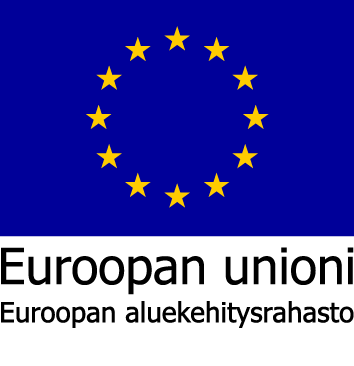 |
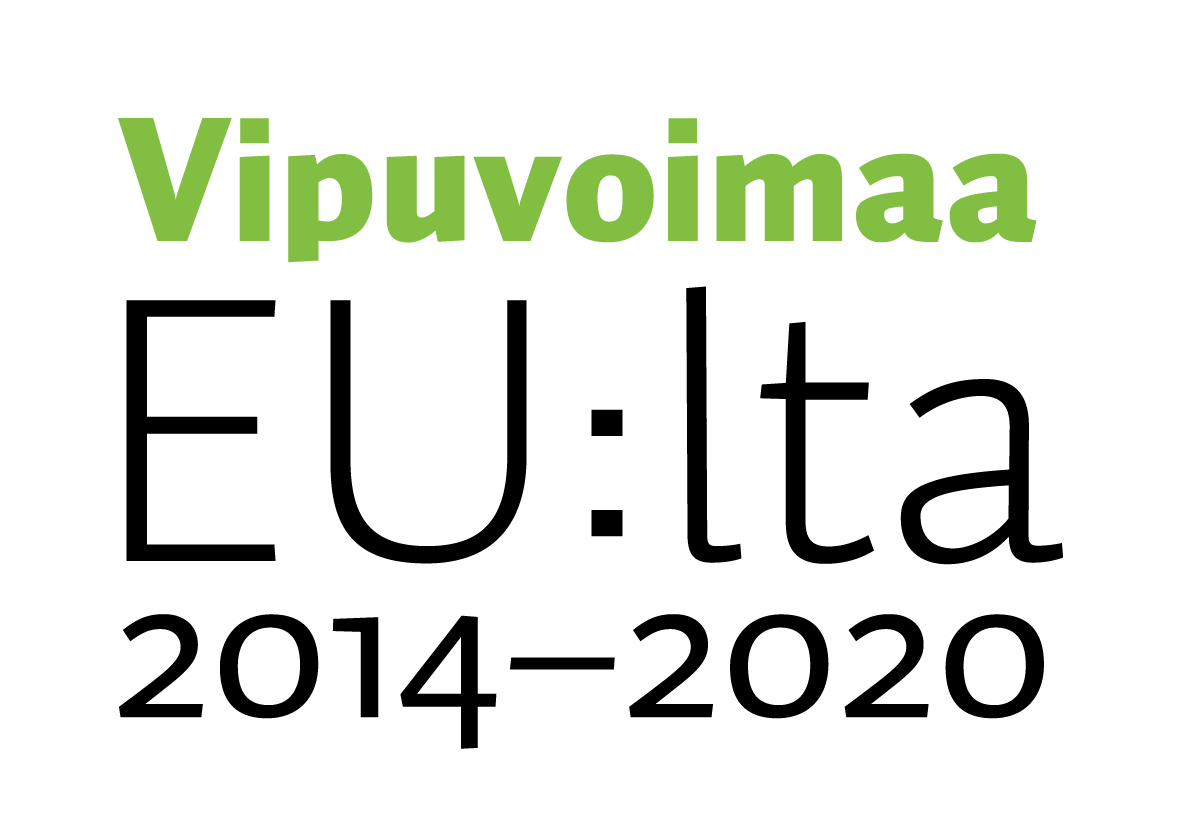 |
Bugs and Brands is a research and regional development project of the Pori unit of the University of Turku School of Economics focusing on the insect economy.
The practical goal of the project is to promote the regional competitiveness of Satakunta by creating sustainable economic growth and jobs based on the insect economy, especially in the rural areas of the region.
![]()
DigiLuonto Satakunta is a project coordinated by the Pori unit of the University of Turku School of Economics, which promotes the digital renewal of nature and cultural travel destinations, international capabilities and the sustainable growth of destination areas in Satakunta. The Pori unit of the University of Tampere acts as a partial implementer.
Objectives:
- Improving the accessibility of natural sites
- Interactivity and digitally expanded experience contents
- Increasing attractiveness in new target groups
- Co-development of business connections and open data solutions
- Development and capabilities (MR, IoT, open data)
The measures will increase the attractiveness of natural attractions, customer satisfaction and visitor loyalty, with the following sustainable growth effects in the selected pilot areas in particular: an increase in the number of tourists and diversification of target groups, the creation of innovative tourism products, as well as positive effects on employment and the number of new companies.
The project operated during 1 April 2019 - 31 March 2021
![]()


![]()
The aim of the "Hygiene to Business" project is to support Satakunta's intelligent specialization in indoor hygiene and resource-wise building technology and to network the research of Satakunta's universities, companies and the public sector.
In addition, the goal of the project is to
- Increase Satakunta's innovation openings with training, workshops and Living Lab innovation platforms
- To implement a new building technical design guideline for the implementation of a hygienic indoor environment as a Living Lab innovation opening
- To support identifying new business opportunities in the business network and transforming innovation openings into business.
The leading implementer of the joint project is Satakunta University of Applied Sciences' Water Institute WANDER, partially implemented by the Turku University School of Economics' Pori unit.
Project implementation period: 1 January 2015 – 31 August 2017
Main funder: Satakuntaliitto (EAKR)
Co-financers: City of Rauma, Abloy Oy, Aurubis Finland Oy, Biolan Oy, Genano Oy, Halton Oy, Isku Interior Oy, ISS Proko Oy, Lankapaja Oy, Merivaara Oy, Oras Oy, Progman Oy, SCDA, Väinö Korpinen Oy
Responsible manager: Kimmo Laakso
The main implementer of the IHMEC project is the Turku School of Economics, Pori unit.
Co-producers are Satakunta University of Applied Sciences, Royal Institute of Technology, Uppsala University, Tartu Business Advisory Service and Estonian Woodhouse Association.
Affiliate partner: Finnish Hospital Technology Association.
Project implementation period: 3/2018 - 2/2021
Main funder: Interreg Central Baltic
Budget: €2.18 million
Responsible manager: Tiina Mäkitalo-Keinonen
The KumppanuusAkatemia project's goal is to develop home and family care for the elderly. In the project, the partnership and network skills of the entities working with the elderly are developed, and the understanding of the importance of the customer orientation of services in the development of services is increased.
The project aims to promote the partnership of the public, private and third sectors in the multi-actor network of the elderly. The goal is that by developing the skills of the multi-actor network, it is possible to produce better integrated and more customer-oriented home and family care services for the elderly.
In the KumppanuusAkatemia-project:
- an electronic platform will be developed for the networking of parties involved in the care of the elderly and the development of network skills
- information is produced on the operation and management of a multi-stakeholder network involved in home and family care services for the elderly
- network operators are involved in the customer-oriented development of services
- enabling the development of service design and business opportunities for operators of the home and family care network
- Workshops and seminars promoting networking are organized
Implementation period: 1 January 2019 – 28 February 2021
Implemented by: University of Turku School of Economics, Pori unit
Main funder: Satakuntaliitto
The project creates a new community-based think tank learning operating model in cooperation between experts and companies. The project includes interventions based on the joint learning of companies to develop change management using the Learning Camp operating model. The project is implemented in collaboration with the Satakunta BuzzBusiness network (Turku School of Economics - Pori Unit, Satakunta University of Applied Sciences and Prizztech Oy).
Project implementation period: 1 January 2015 – 31 March 2017
Main funder: TEKES
Responsible manager: Ulla Hytti
We are involved in the Student Entrepreneurship Operating Environments sub-project, which is part of the flagship project Entrepreneurship and Entrepreneurial Activities.
The student entrepreneurship project is coordinated by Åbo Akademi, and in addition to University of Turku School of Economics Pori unit, the University of Oulu and the Novia and Centria universities of applied sciences are partners.
The goal is to develop the Pori University Center's operating environment so that it even better supports students' entrepreneurial skills and an entrepreneurial way of thinking and acting.
Implementation period: 1 August 2018 - 31 May 2021
Budget: €220,000
Main funder: Ministry of Education and Culture
Responsible manager of the project: Salla Siivonen
Turku School of Economics, Pori unit, is involved in the Potential for Blue Economy work package of the Plan4Blue project coordinated by the Finnish Environment Institute. The project examines blue growth, the current state of coastal industries and strategies for Kymenlaakso, Uusimaa, Varsinais-Finland and the northern coast of Estonia.
The project uses a multi-method approach: economic development trends have been analyzed with quantitative methods using national statistics and the Orbis Europe database as data. The understanding of future sector strategies and development trends has been built with qualitative methods together with the project's stakeholders both in workshops and through interviews and the delphi process.
EU and OECD national policy papers have been used to form a picture of how the understanding created, based on the project's materials, is related to the broader economic development of the Baltic Sea region.
Project implementation period: 10/2016 - 9/2019
The goal of the project is to build a strategy-based competence management operating model suitable for micro and SME companies. The goal is to get the company's personnel and management to understand the principles of strategy-oriented competence management and to see the benefits that come from this, as well as to understand the mutual connection between productivity and work well-being in everyday practices and management.
With the help of a new operating model, companies' knowledge resources can be used more efficiently, increasing productivity. The operating model will be widely used nationwide. The project also produces national information about the most significant competence needs of micro and SME companies behind productivity and well-being at work.
Project implementation period: 1.1. 2016 - 30.4.2018
Main funder: Häme Ely Center (ESR)
Responsible manager: Kimmo Laakso
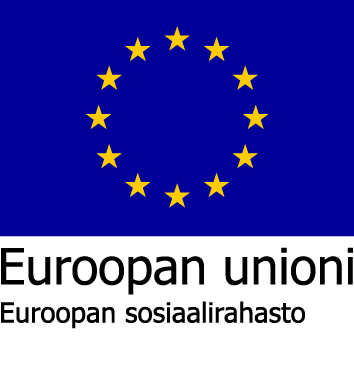 |
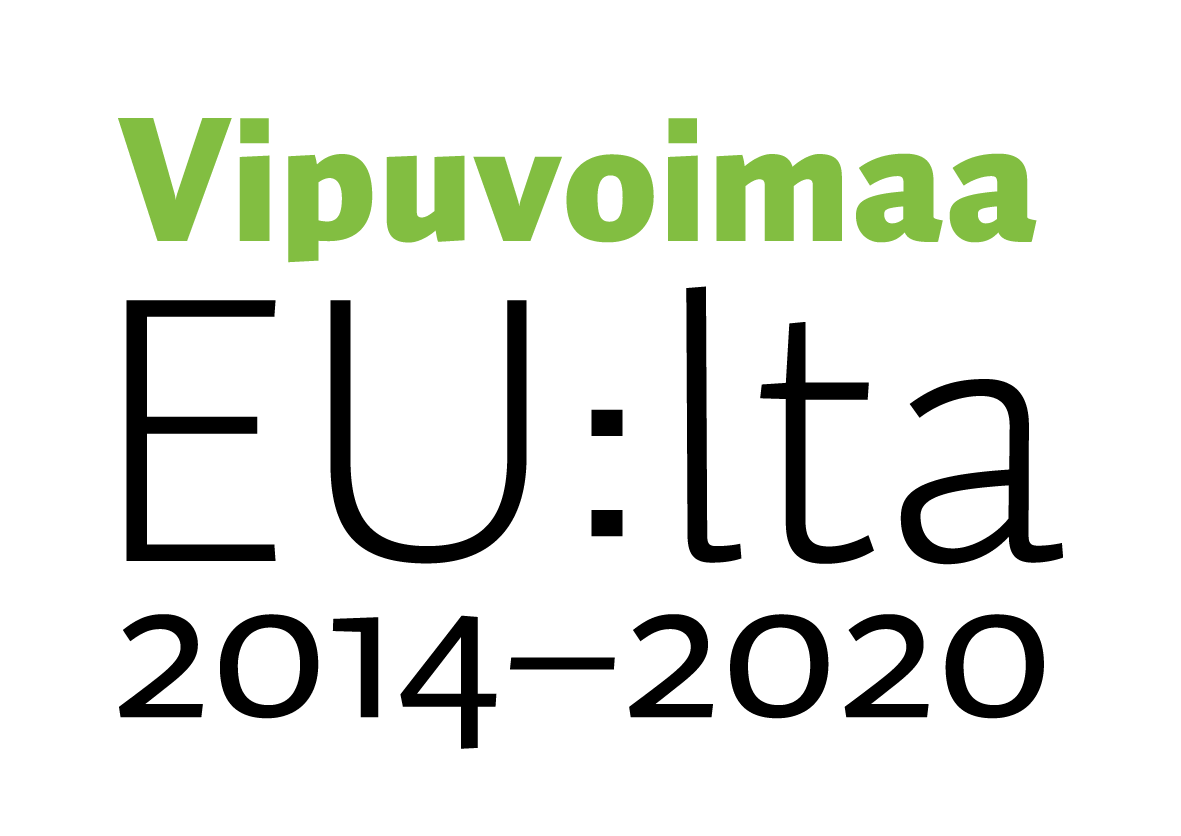 |
The main implementer of the TEUVO project is the University of Turku School of Economics, Pori unit, and the partial implementer is the Pori unit of the Tampere University of Technology.
The goal of the project is the development of business models of business networks, the development of the statistical information system for the intelligent specialization of Satakunta, and the strengthening of cooperation between project implementers, companies and other regional actors.
Project implementation period: 1 January 2015 – 31 September 2018
Main funder: Satakuntaliitto (EAKR)
Responsible manager: Kimmo Laakso
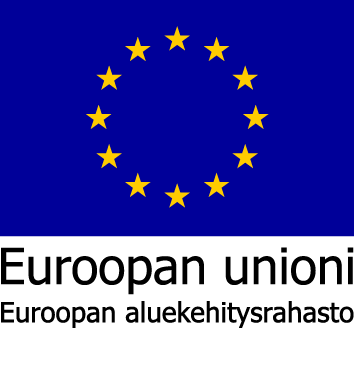 |
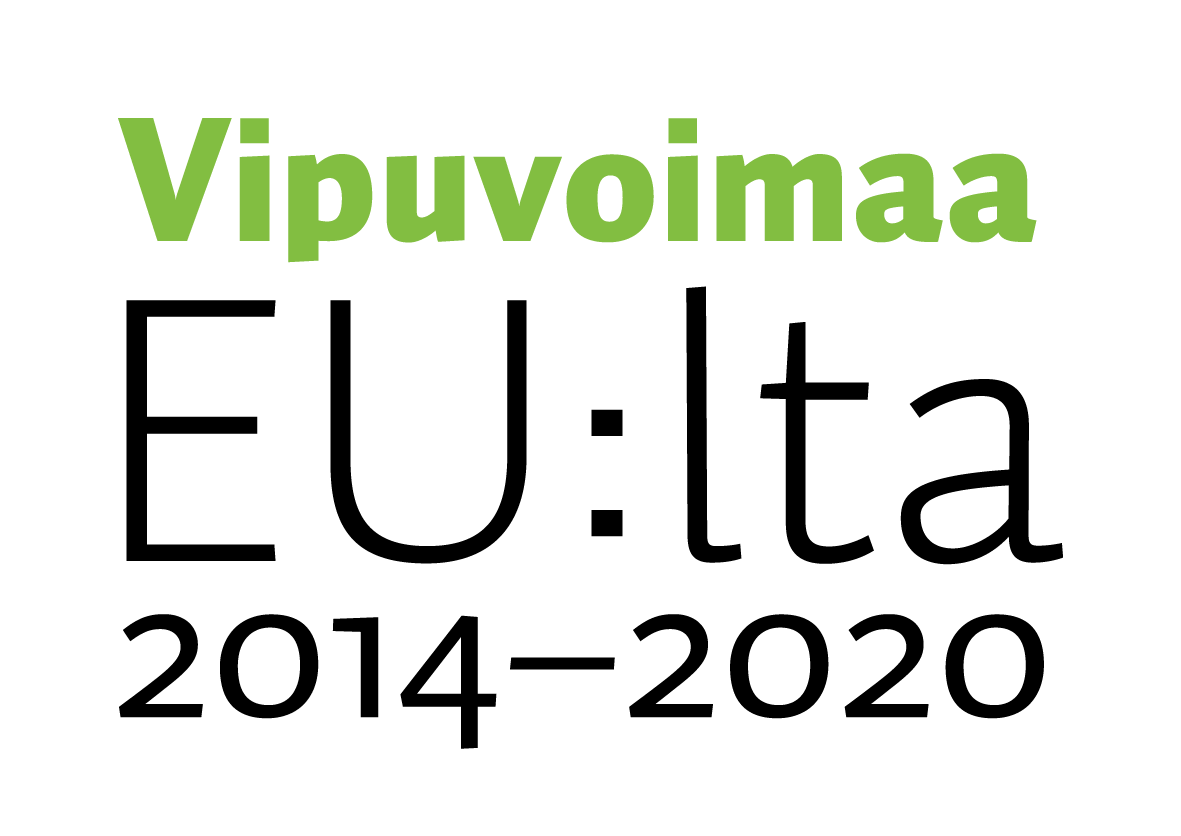 |
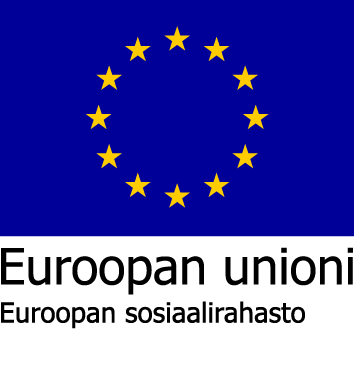 |
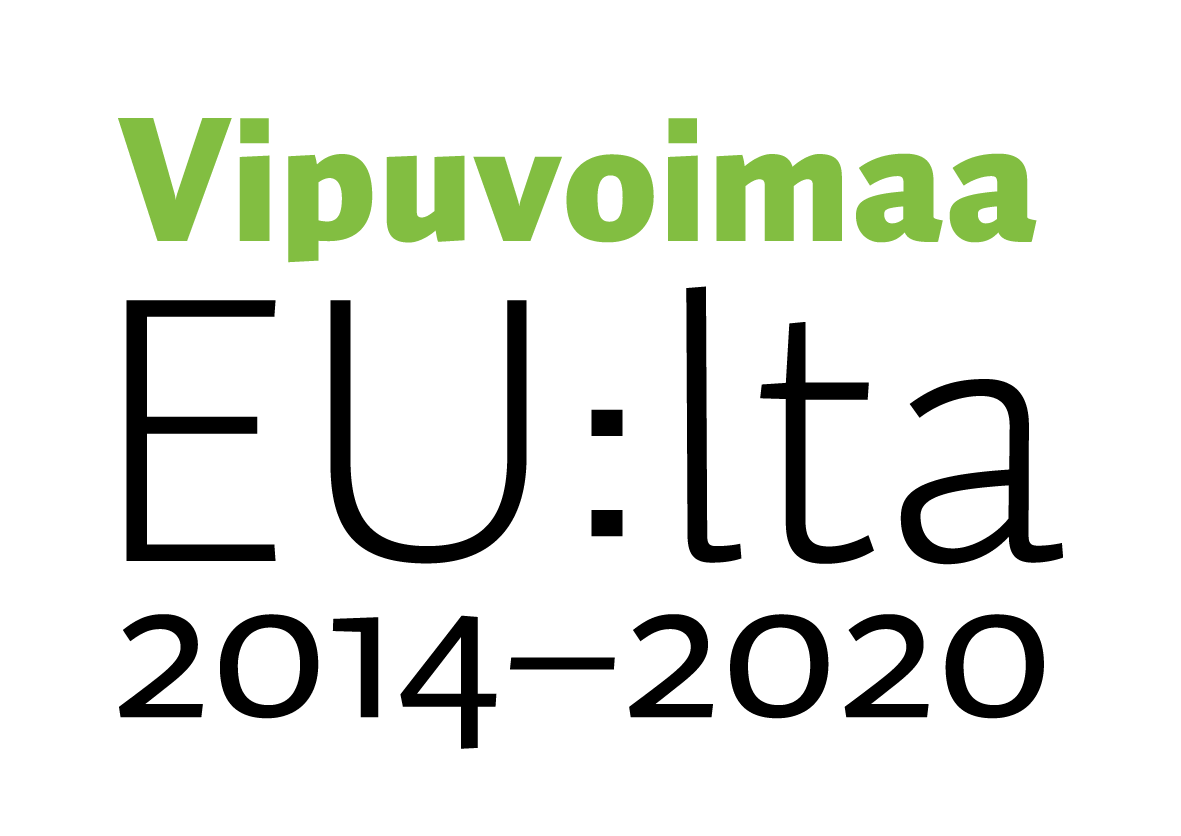 |
VERTTI - Enthusiasm from networks and renewal with services is a national ESR-funded project (Activity line 3, special objective 7.1. Improving productivity and well-being at work) whose goal was to:
1) Identify the development, competence and meeting needs of companies and promote the development of small business networks
2) Produces individual, process-based entrepreneurial support for micro and small businesses as well as proactive entrepreneur/business-oriented services
3) Develops services for individual entrepreneur support from concept blanks through piloting and experiments
4) Create an individual entrepreneur service process model for broader use.
64 companies from different industries have been involved in the project. The leading implementer of the VERTTI project has been the Pori unit of the University of Turku School of Economics and project partner Prizztech Oy. In cooperation with Competence Design Oy and Covis Partners Oy, three service packages have been developed especially for sole proprietors, micro and small companies: Minicamp, Yrittäjäluotsi and Osaamiklinikka. A process model of individual entrepreneur service has been compiled based on the service concepts. The project has promoted the productivity and well-being of companies at work with the help of service design in networks, which can be seen as supporting the sustainable development of the local business structure.
Check out the results of the project here.
Project implementation period: 1 March 2018 - 31 December 2020
Main funder: Häme ELY Center.
Project team:
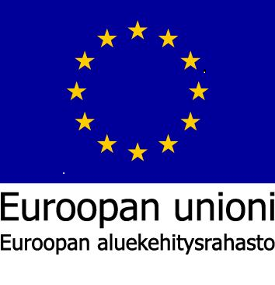 |
 |
The YRTTI - Entrepreneurs' survival strategies and supporting resilience during crises project focuses on curbing and recovering from the harmful effects of the coronavirus epidemic on the region's development for small businesses. The project aims are thus linked to promoting economic structural changes and strengthening the area's flexibility to change, supporting especially sole proprietors in unusual situations.
The activities of the YRTTI project combine individual development/coaching with entrepreneurs as well as networking and workshop work. Ten (10) sole proprietors from service sectors are recruited for the project, with whom the cooperation will serve as a pilot.
In the YRTTI project:
- new information is produced about the challenges faced by sole proprietors in the service sector in a crisis, and strategies and models are identified, which can be used to support and develop the flexibility of entrepreneurs to change (the ability to survive and adapt in unpredictable, surprising change situations)
- modelling the response to a crisis, especially from the point of view of sole proprietors in the service sector; how they have responded to the effects of the restrictions caused by the Corona epidemic in business
- business development of sole proprietors is supported through individual coaching and workshop work
- an electronic workbook is compiled, highlighting good practices and operating models in preparing for and coping with crises.
The goal is that the practices and operating models are not regional or industry-related but widely usable by different companies.
Read more on the project's website: https://www.utu.fi/fi/yrtti
Implementation period: 1 January 2021 – 31 December 2021
Implemented by: University of Turku School of Economics Pori unit
Main funder: Satakuntaliitto
Project group:
Salla Siivonen, a responsible leader
DISCE is a research project that started in 2019 to investigate and promote the sustainable development and social impact of the cultural, artistic and creative fields. DISCE produces an understanding of the creative economy in the EU region and its development needs. The project also researches and develops education, entrepreneurship and business in the cultural and creative fields, as well as statistics and measurement. The study targets ten European urban areas, of which Pori is one.
The leading implementer of the project is the Turku School of Economics, the Department of Management and Entrepreneurship. TSE Pori unit is also involved. In addition to the Turku University School of Economics, King's College London (England), Gran Sasso Science Institute (Italy) and Stockholm School of Economics in Riga (Latvia) carry out research in the international research group. In addition to the universities, the research consortium includes the communication office Culture and Media Agency Europe (Belgium) and the network of European cultural centres Trans Europe Halles. The EU's Horizon 2020 program funds the research project.
Implementation period: 17 May 2019 - 30 June 2022
Project contact persons:
Jarna Heinonen (director of the research consortium)
Ulla Hytti
Arja Lemmetyinen
Project working group:
Pekka Stenholm
Tommi Pukkinen
Kaisa Hytönen
Lenita Nieminen
Elisa Akola
Lilli Sihvonen
DISCE on social media:
Twitter https://twitter.com/DISCE_EU
Facebook https://www.facebook.com/disceeu/
Instagram https://www.instagram.com/disce_eu/
LinkedIn https://www.linkedin.com/company/disce-eu/about/
Website https://disce.eu/

The goal of the Smart100Business project is to strengthen the smart specialization of the province, especially by improving competence related to Blue Growth. In the project, blue growth refers to the development of the maritime cluster and maritime industry at the macro and micro levels.
In the macro part of the project, methods are developed to identify and analyze quantitatively, first of all, the opportunities and challenges of smart specialization for Satakunta's regional economy, taking into account national and European Union regional development goals. From a micro perspective, the main goal is to contribute to the competitiveness of Satakunta's maritime industry networks on the international market.
The leading implementer of the Smart100Business project is the Pori unit of the University of Turku School of Economics, and the partial implementer is the Pori unit of the University of Tampere.
Implementation period: 1 April 2019 – 28 February 2021
Project working group:
Jenny Katila
Salla Siivonen
Teemu Haukioja
Ari Karppinen
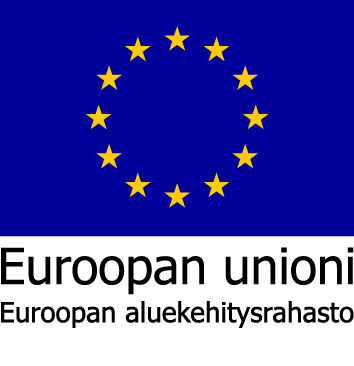

![]()
The goal of the project is to spread the practices and operating methods of the Smart Experience Economy in Satakunta and further conceptualization based on the results of the Digiluonto project (Ely 2019-2021).
Main implementer of the project: Tampere University's Pori unit
Part-implementers: TSE Pori unit and Satakunta University of Applied Sciences
Project implementation period: 1.1. - 31 December 2021
Project contact persons:
TuKKK, Pori: tuomas.pohjola@utu.fi
TaY, Pori: jere.gronman@tuni.fi
SAMK: soile.vahela@samk.fi
Links to project materials:
Mobile application: https://app.digiluonto.fi
Youtube: https://www.youtube.com/channel/UC7UyElbrsWokaSsMW8RnKaA/videos
Homepage: www.digiluonto.fi
Project group:
TuKKK, Pori: Tuomas Pohjola, Jani Viljanen
Responsible manager: Arja Lemmetyinen
![]()




In accordance with the Satakunta provincial program, the UniBlueNet project strengthens regional digital transition, smart specialization and university research, development and innovation (TKI), promoting blue and green growth through multidisciplinary, international research cooperation and networks.
The concrete action of the UniBlueNet project is the Horizon-Europe, Cluster 2, Research and Innovation Action 2021 project application prepared under the leadership of the TuKKK, Pori unit's SusBerg research group, which has been implemented in accordance with the application criteria in cooperation with an international consortium and submitted on the European Commission's research portal by the deadline.
The main implementer of the project: the Turku School of Economics, Pori unit
Project implementation period: 1.3.-31.10.2021
Project contact person: Project researcher Tuomas Pohjola, tuomas.pohjola@utu.fi
Project group:
Arja Lemmetyinen
Jari Kaivo-oja
Tuomas Pohjola
Ari Karppinen
Teemu Haukioja

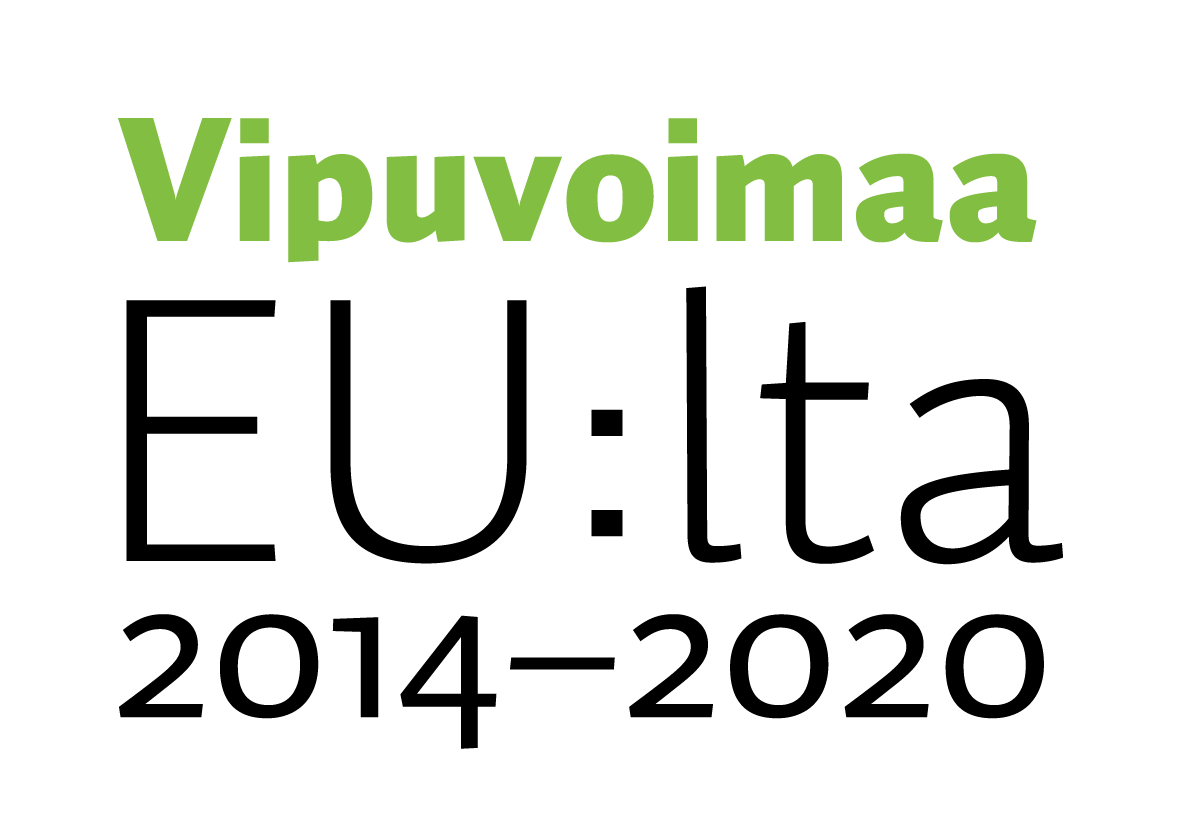
THE GOALS OF THE PROJECT ARE:
- Develop the corporate responsibility skills of independent and micro-entrepreneurs and thereby improve their ability to respond to changes in the operating environment
- Develop a joint service design model for the development of corporate responsibility issues, "corporate responsibility focus group concept", to increase responsibility expertise
- Pilot peer group and focus group activities offered to independent and micro-entrepreneurs and map out the need for company-specific coaching and themes. Based on the experiences gained and the information gathered, put together a hybrid model combining different forms of support to support independent and micro-entrepreneurs.
The project collects information about the challenges and support needs faced by independent and micro-entrepreneurs during the Covid-19 pandemic, as well as companies' responsibility expertise and views on responsibility. It offers independent and micro-entrepreneurs support that meets their needs:
- Online or face-to-face peer support-based peer group activities
- Focus group activities that develop expertise in a specific, focused topic linked to responsibility (economic, social or environmental responsibility) based on the needs of companies
- A focus group concept for corporate responsibility competence is built to help companies develop their responsibility competence
Based on the experiences gathered in the project, a hybrid model combining different forms of service will be put together, especially for supporting independent workers and micro-entrepreneurs.
Main implementer: Turku University School of Economics Pori unit
Partial producer: University of Oulu
Project implementation period: 1 September 2021 - 31 August 2023
Project contact person:
Tanja Lepistö
project researcher
tel. 050 520 0785
tanja.lepisto@utu.fi
Sari Liikala
University of Oulu
tel. 050 453 0089
sari.liikala@oulu.fi
Project team:
Salla Siivonen (responsible manager)
Tanja Lepistö
Teemu Haukioja
Markus Kantola
Riikka Franzén
Sari Liikala
Read more on the project's website: https://www.utu.fi/hybridi
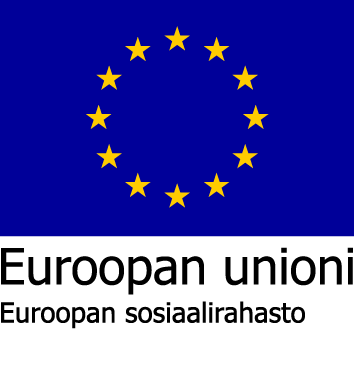
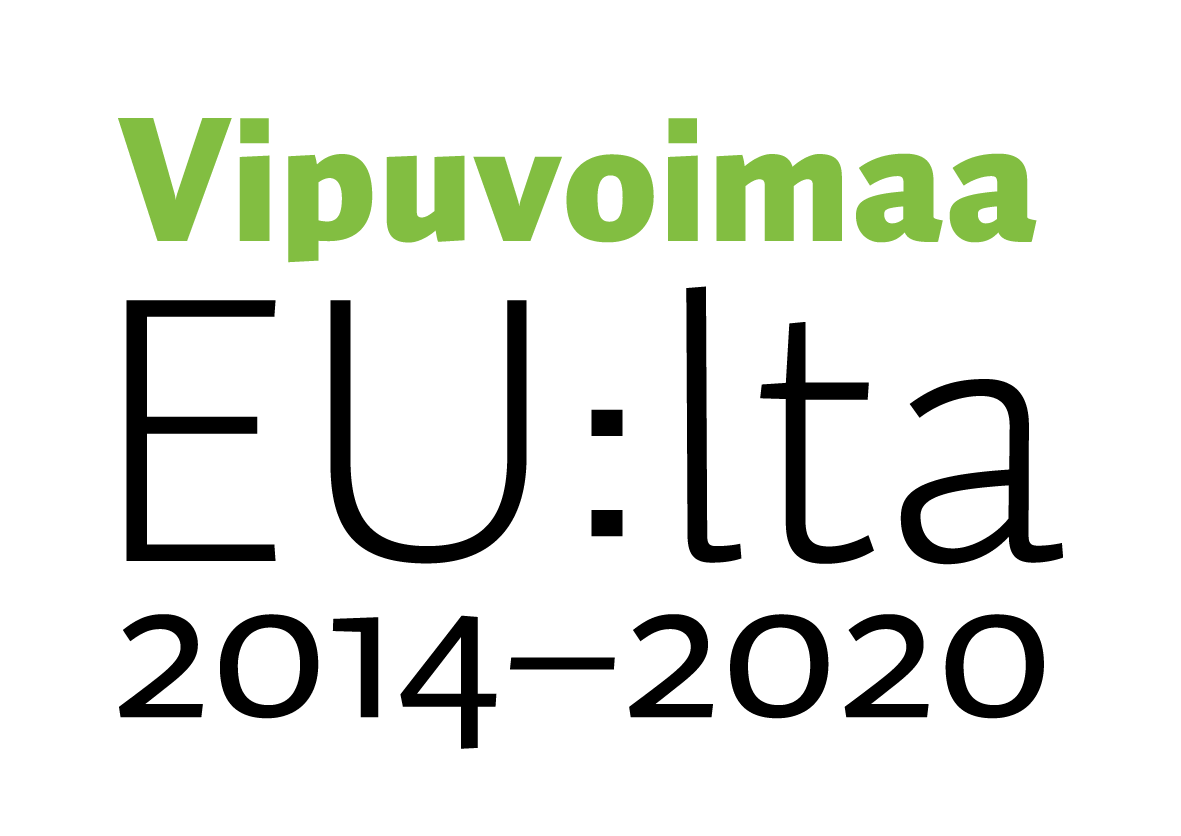
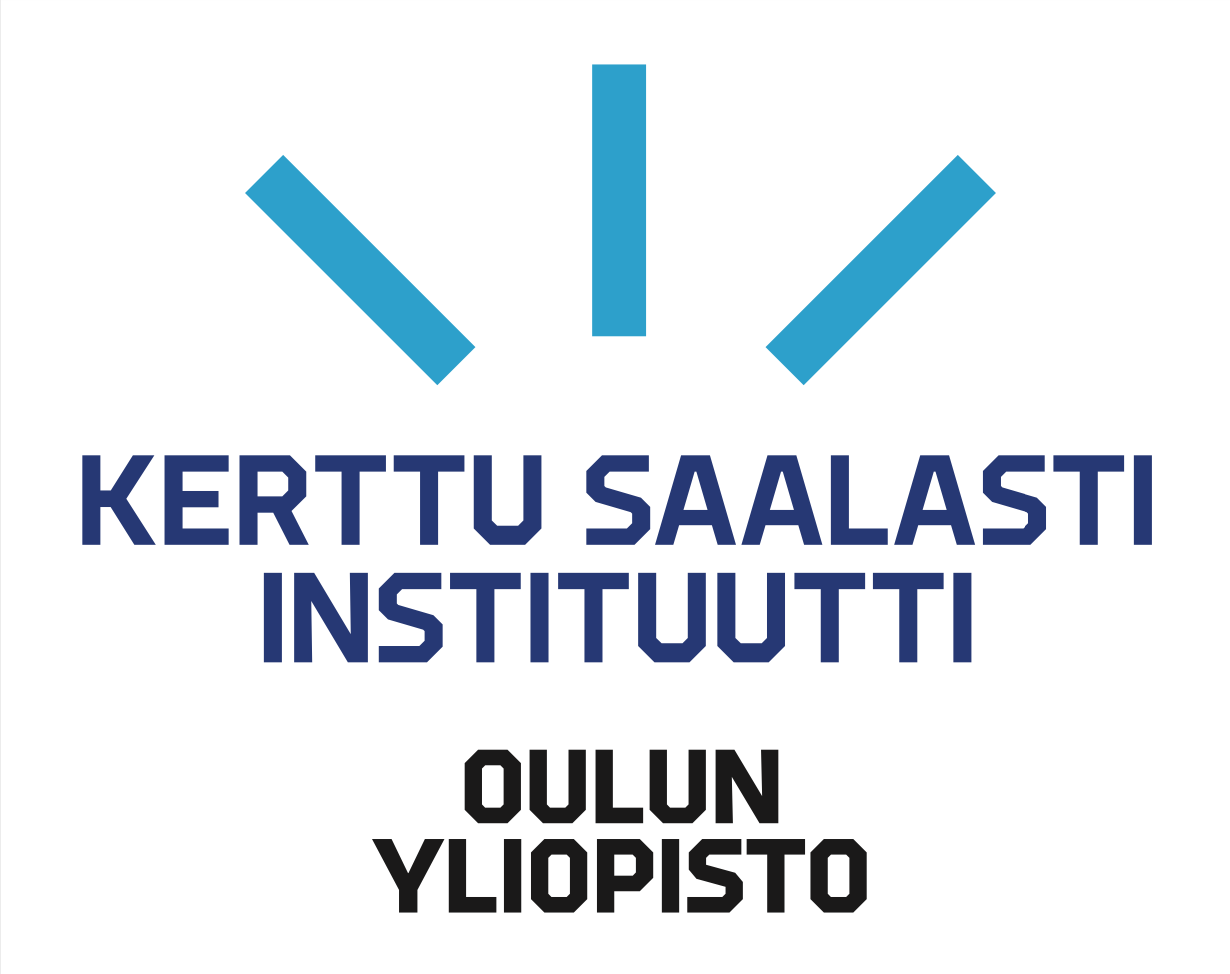
A company capable of change -project aims to support and improve the ability of SMEs and entrepreneurs in the Western Finland region to survive and succeed in a changing and uncertain operating environment.
The project produces a practical Change Flexibility Radar, which aims to help companies and entrepreneurs identify the current state of their flexibility to change and areas for improvement. In addition, change flexibility training is organized to strengthen the development of skills and the networking of companies and entrepreneurs in the region.
Main and partial implementers: University of Turku's Brahea Center and Turku School of Economics, as well as the partial implementers University of Vaasa and Varsinais-Suomen Yrittäjät ry
Implementation period: 1 September 2021–31 August 2023
Contact person:
Heli Trapp, heli.trapp@utu.fi, +358 40 508 3964 (contact person for the entire project)
Joanna Asumus, joanna.asumus@utu.fi, +358 50 476 6831 (Pori unit contact person)
Materials:
Project brochure: https://www.utu.fi/sites/default/files/media/ARD/Henkil%C3%B6st%C3%B6n%20ja%20organisaation%20kehitt%C3%A4minen/Muutoskyvyk%C3%A4s%20yrittis %20 project.pdf
Vaasa presentation page: https://www.uwasa.fi/fi/tutkimus/hankkeet/muutokyvykas-yritys
European Social Fund (ESF) description of the project: https://www.eura2014.fi/rrtiepa/projekti.php?projektikoodi=S22584
Project team:
The University of Turku, University of Vaasa and Varsinais-Suomen Yrittäjät ry;
Salla Siivonen, Tanja Lepistö and Joanna Asumus will work in the Pori unit team in 2021
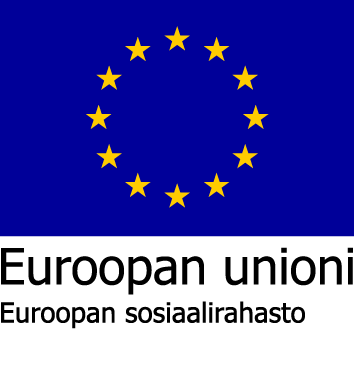
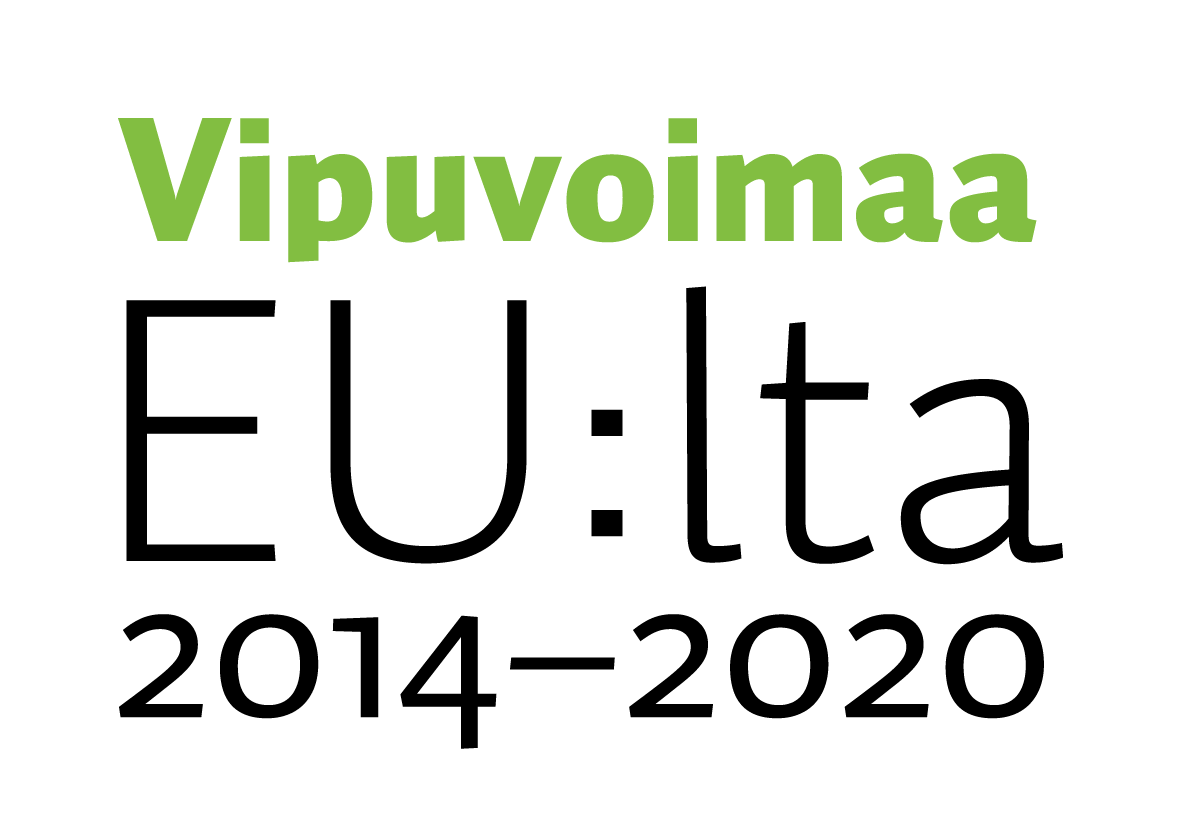
The Terva project aims to strengthen Satakunta's indoor environmental hygiene innovation and competence centre and further develop the business potential of Satakunta companies and the sustainable growth conditions connected to the blue economy. The goal is to improve the competitiveness and vitality of the Satakunta shipbuilding industry with a new, innovative perspective on indoor environment hygiene.
Leading implementer: Satakunta University of Applied Sciences, Research Center WANDER
Part-producer: University of Turku School of Economics, Pori unit.
Implementation period: 1 March 2021–31 August 2023
Contact persons:
Riika Mäkinen, riika.makinen@samk.fi (Satakunta University of Applied Sciences, Research Center WANDER)
Riikka Franzén, riikka.franzen@utu.fi (Turu University School of Economics, Pori unit)
Financed by: EAKR / Satakuntaliitto
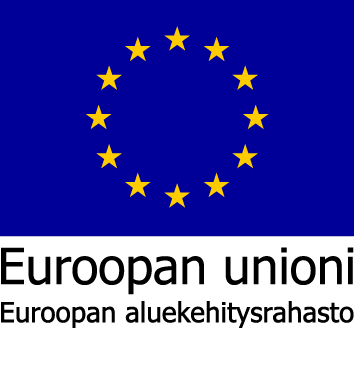


Business cooperation in the Turku School of Economics, Pori unit
As part of the multidisciplinary University of Turku, the TSE Pori unit offers companies many opportunities for research and teaching cooperation, covering individual and broader development projects with companies and other organizations. A unique feature of the Pori unit is the tight cooperation with the regional stakeholders.
Examples of business cooperation in the TSE Pori unit
At UCPori Club's themed brunches, the UCPori's own or visiting experts start the breakfast on a current topic while enjoying good food and company. Brunches are organized 2-4 times a year on Wednesday mornings at 8:00-9:30.
Contact info:
kati.suomi@utu.fi
